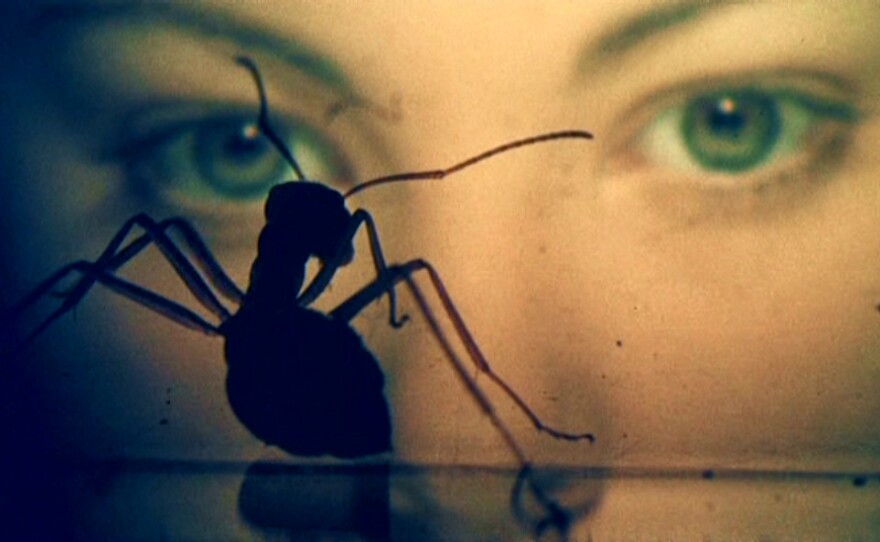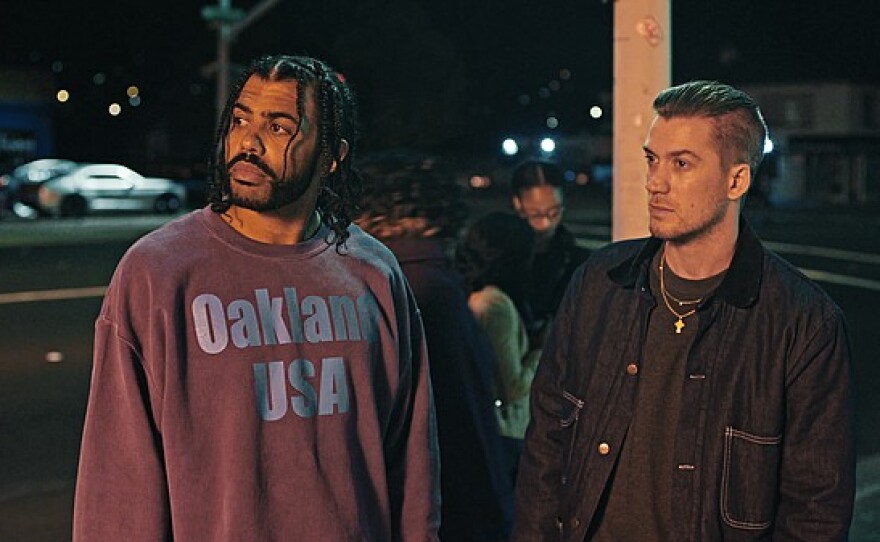Cinema Junkie is technically on holiday break but here's something old and something new to start the year: an archive of my Reel Science episode plus my picks for the best films of 2018.
Although I'm trying to take a vacation, I did want to run through the best and worst of 2018 before we get too far into 2019.
Doing a 10 best list is always difficult for me. Sometimes there are too few films to pick from and sometimes too many. But mostly it is painful because movies are so diverse and the reasons for loving them are varied. In some ways I see a 10 best list as a means of not just highlighting the top films of the year but also the films that I felt were unjustly ignored or overlooked. But picking just 10 films is like having a lifeboat and only being able to save ten of your children. How do you decide who is truly the most worthy?
This year I felt I wanted to highlight films that I loved and that I also felt need all the support they can get to encourage people to seek them out. Two of the films are still in need of U.S. distribution so if I can do a tiny part if trying to lift these movies up than I am thrilled. So here goes!

The Top Films of 2018
“Blindspotting”
"One Cut of the Dead"
"Hereditary"
"Vice"
"Snowflake"
"Spider-Man into the Spider-Verse"
“Three Identical Strangers”
"The Night Comes For Us"

Honorable Mentions
This year my honorable mentions go to a collection of brilliant films that all deserve to be on a year-end list but I am placing them as runners up because they are all from well-established filmmakers and the films are racking up awards from the mainstream critics and don’t need any more accolades to get audiences to see them. So Alfonso Cuaron’s “Roma,” Spike Lee’s “Blackkklansman,” Ryan Coogler’s “Black Panther,” Yorgo Lanthimos’ “The Favourite” and the trio of foreign films “Burning,” “Shoplifters” and “Cold War” are all well worth seeking out.
Also worthy of mention
“Rampage” was far and away the most delightfully surprising film of 2018, delivering an American kaiju (giant monster) film with The Rock as a human version of kaiju. This was pure fun from start to finish. In the action realm, “Upgrade” was also an unexpected treat with a script that was far more clever than I was anticipating.
“Annihilation” delivered smart sci-fi with a strong female cast and an absolutely spectacular production design.
Lynne Ramsey shined darkly with “You Were Never Really Here” with Joaquin Phoenix as a traumatized veteran who tracks down missing girls for a living. It was hypnotic, nightmarish, and totally riveting.
Fest favorites from the San Diego Asian Film festival included “Long Day’s Journey into Night” and “Killing.” I would also give a special nod to the 8-hour plus documentary “Dead Souls” that bravely screened here at the San Diego Asian Film Festival and kudos to artistic director Brian Hu for programming it.
There was also the treat of “The Other Side of the Wind,” which let Orson Welles deliver a film from beyond the grave paired up with the documentary "They'll Love Me When I'm Dead," about Welles' final film project.
Technical merit
A shout out for the score and the enchanting animation style of Wes Anderson’s “Isle of Dogs.” Anderson displays a lot of cultural naivete that borders on insensitivity but his dogs are endearing and the production design of their world is richly detailed.
Kudos to the team that edited "The Other Side of the Wind" from Welles' notes. Other editing standouts were "Vice," "Sorry to Bother You," "Blindspotting," and "If Beale Street Could Talk."
Cinematography highlights came in a pair of gorgeous black and white films: "Roma" and "Cold War," with "If Beale Street Could Talk" and "The Favourite" dazzling with color.

Acting awards
Best Actress: Toni Collette in “Hereditary”
Runners up: Nicole Kidman in “Destroyer,” Olivia Colman in “The Favourite,” and Yalitza Aparicio in “Roma”
Supporting actress: Tilda Swinton in “Suspiria”
Runners up: Amy Adams in “Vice” and Cynthia Erivo in both “Widows” and “Bad Times at the El Royale.”
Best actor: John David Washington in “BlacKKlansman”
Runners up: Mahershala Ali in “Green Book” and Christian Bale in “Vice”
Supporting actor: Michael B. Jordan as Killmonger in “Black Panther"
Runners up: Richard E. Grant in “Can You Ever Forgive Me?,” Daniel Kaluuya in “Widows,” and Steve Carell as Donald Rumsfeld in “Vice”
The Worst of 2018
There was a lot of disappointment in 2018 as well. Although my expectations were not high for these films they all delivered even less than I thought they could while maximizing hype: “A Star is Born,” “Mary Poppins Returns,” and “Aquaman.” Just plain bad and mercifully not receiving much hype are “Mile 22,” “The 15:17 to Paris,” “Red Sparrow,” “Welcome to Marwen” (especially offensive because the documentary “Marwencol” was so great), and “The Meg” (I am so mad that they missed the boat with Jason Statham vs. a giant shark and it was such a low bar).
And then there were a few films that I honestly just could not bring myself to watch like “Fifty Shades Freed,” “Hunter Killer,” and “Robin Hood” among quite a few. The trailers alone were so painful to watch that I could see wasting two hours of my life on the whole films. It’s possible I missed something great, but I doubt it.
I’m sure I will agonize over the choices for a few more days and worry about how many films I didn't see that might have been great but how wonderful to have a year with so many cinematic treasures and so many from new and diverse filmmakers.

Reel Science
Now to the archive podcast of Reel Science. Reel Science is a partnership between The San Diego Natural History Museum and Digital Gym Cinema that pairs real scientists with a film so that science fact and science fiction can meet.
The museum’s purpose in doing this is to find new ways to engage audiences in conversations about science. Pop culture proves to be a brilliant entry point for this. Films such as "Back to the Future" and "The Matrix" can make science feel less threatening and more accessible, and then add in a real scientist to point out what the films get right or get wrong and suddenly people are painlessly learning things.


